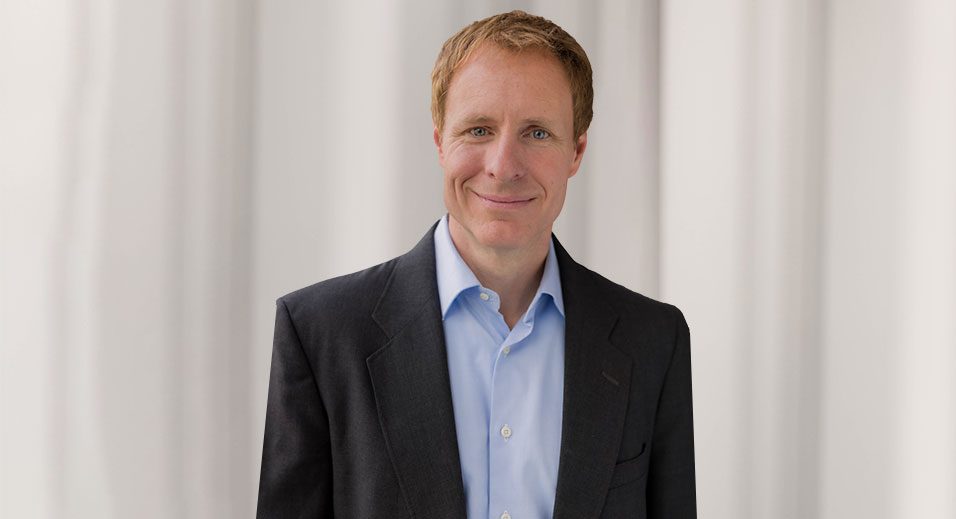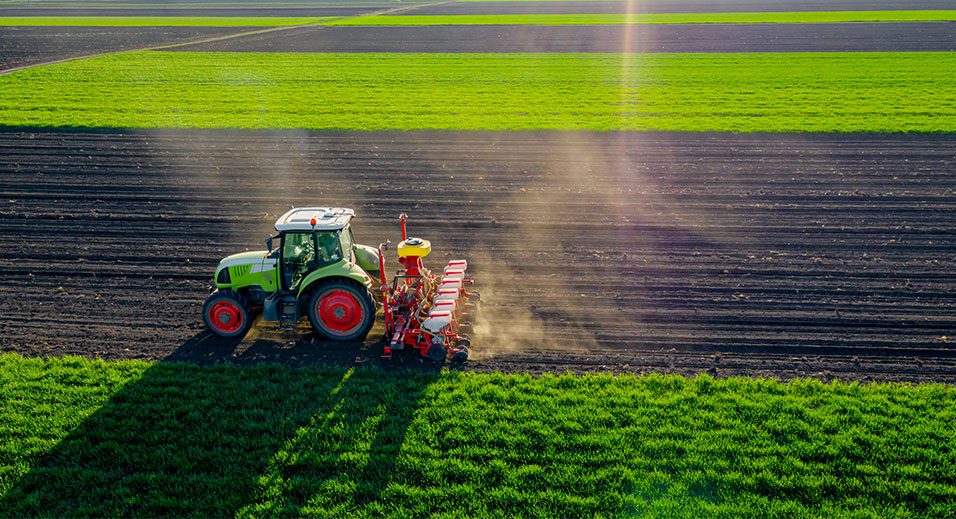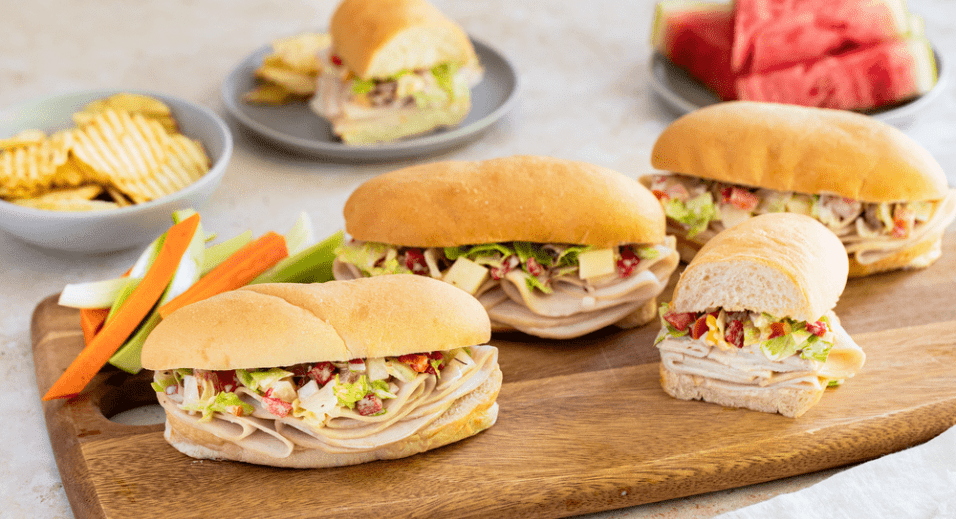Championing shared value at Maple Leaf Foods through his journey in sustainable agriculture, environmental footprint reduction, and carbon neutrality.
Joe McMahan is Vice President of Sustainability & Shared Value at Maple Leaf Foods. Having joined our organization in April 2023, Joe brings nearly two decades of experience leading sustainability strategies and programs across multiple sectors.
Joe’s career kicked off supporting sustainability efforts by enhancing access to markets for small-scale farmers in East Africa. He then worked with Mars Inc. in the chocolate industry, moving to Indonesia to help farmers get access to clean water as part of their sustainability certification process. Following graduate school, Joe spent time working at Coca-Cola on their sustainability team. Just prior to joining Maple Leaf Foods, Joe’s last 10 years involved developing a social responsibility and environmental stewardship framework and commitment for the U.S. dairy category, which is now adopted by more than 80% of the U.S. milk supply.
It was all very fulfilling work, notes Joe, and when he was contacted by Maple Leaf Foods to join our sustainability team, he hadn’t anticipated leaving his last role. But it was something about our values and purpose in sustainability that reeled him in.
Read on to learn more!
What brought you to Maple Leaf Foods and what has made you stay?
It was every indication that we take sustainability seriously. It’s not a marketing exercise and it’s clearly not fluff. We uphold this concept of shared value, which defines our purpose to “Raise the Good in Food” through the interconnection of societal needs and the success of our business — and this is much broader than just the shareholder. It’s that interconnection between our consumers, customers, communities, the planet, and our Team Members that resonates with me.
The reason I stay and why I’m so confident in our future is that we walk the talk. There’s a lot of great things we could do. The commitment of the company and our imperative for action defines us. We’re at unprecedented times in terms of climate change, human health, biodiversity and nature, food security, water resources, and more. It’s the nexus of these profoundly impactful dimensions and the essential role that food systems and companies like ours must play — that we have to make right. The decisions we make today lay the groundwork for decades to come, and it’s a very exciting time to work within a company that embraces the cause.
What role do you play on our Sustainability team?
I have an overarching role for the environment at Maple Leaf Foods, I lead the team that maintains the company’s carbon neutrality status, oversee strategies and action plans to measure, report, and work towards our sustainability commitments, targets, and goals, and coordinate across all aspects of the business regarding sustainability-related engagement and communications. Regarding our environmental goals, this is a very important year as we seek to recalibrate and refresh our public commitments to climate action and sustainability leadership, as aligned with the latest available science and standards.
Regarding environmental sustainability within our facilities, I work closely with Faye Cooper, Vice President of Asset Reliability, Industrial Engineering, and Sustainability Execution, along with manufacturing leadership, and a highly talented and driven team of sustainability champions throughout the network to advance strategy and action to reach our environmental footprint reduction goals.
What does sustainability at Maple Leaf Foods mean to you?
I have long believed in, and resonate strongly, with Maple Leaf Foods’ position on sustainability: to be bold, ambitious, and real. We are not timid about the importance of this – the Blueprint for our company leads with a vision to be the most sustainable protein company on Earth.
Within the broader context of shared value, being the most sustainable translates to profound and meaningful action to protect the planet. I admire our refusal to ignore or downplay the existential threats of climate change and the impact of food production on our planet. Rather than defend or deflect, we embrace the problem and our obligation to be part of the solution. There’s so much we can do to draw positive change and I am proud that Maple Leaf Foods is so highly invested in what a resilient, sustainable, and responsible 21st century food system can be.
People are going to continue to eat — the most fundamental thing for the survival of our species is food. So, we have to get it right. For me, at Maple Leaf Foods, sustainability means we take ownership of this fact and are bold in our positioning, commitments, and actions to accelerate shared value and maintain leadership as a purpose-driven company.
How do you practice sustainability in your everyday life?
The first is I’m that a real stickler for not leaving lights on in the rooms that we’re not in! I care about reducing our power consumption and aim for reduction as well in my water use, heat and cooling my home, and how I can recycle, reuse, or reduce waste.
I’m also a huge fan of thrift stores. I’m a regular at Goodwill because I can’t think of many things more sustainable than supporting a social enterprise, while also reducing the impact of producing new things and sending used goods to landfill. Similarly, from cars to our furniture to home renovation, I enjoy repair and restoration instead of buying new items. An added benefit is a fun hobby and learning new skills that save money as well!
I hate wasting food, am careful in what I purchase. I have also become masterful at making the most of leftovers for a tasty future meal; whether my family agrees is a topic of debate!
Finally, I offset my air travel. I make sure that even when I fly a lot, I’m investing in quality carbon reduction projects that neutralize my flights. I’m very careful about when I travel and when I go places, really stacking on as much value as I can so that it’s minimizing my footprint.
Are there any sustainability projects you’re currently working on that you can share details about?
One that I’m particularly excited about is the elevation of sustainability culture at Maple Leaf Foods. We all have a role to play, and there are so many people who believe in the benefits of sustainability and shared value and who would like to know more and get more involved in what we’re doing. Everyone can make a difference, and together it’s that shared sense of ownership, accountability, and alignment across the whole company that enables progress at scale.
We’re looking ahead to the future and are committed to developing and sharing actionable strategies, goals, and execution plans to meet them.
Further, there’s the work that we’re doing on our farms and in our supply chain. While we’re working hard to reduce the environmental footprint of our own operations, sustainability is much larger than our four walls. There’s also a lot that we can do to drive progress through our supply base and in collaboration with partners.
One example is regenerative agriculture, which improves environmental stewardship on the farms that produce the feed for our animals. We began supporting 20,000 acres of cropland with regenerative practices three years ago and aim to expand our impact to 250,000 acres in 2024. Tied to this is a broader coalition called CANZA, in which Maple Leaf Foods is a founding member. The initiative provides the opportunity to work with leading companies in Canada on a shared goal of a net-zero agri-food system, as the cause is much larger than ours alone.
At the end of the day, sustainability is at the core of our values and key to continued success. We are on a purposeful journey to Raise the Good in Food through leading the way, building loved brands, broadening our impact, operating with excellence, and developing extraordinary talent.
What do you hope for the future of sustainability at Maple Leaf Foods?
Our vision is to be the most sustainable protein company on Earth, and our Blueprint and Leadership Values directly align with the cause. We’re continually looking for ways to improve our metrics, targets and performance, and are actively engaging with other companies, associations and thought leaders to deliver solutions for a low carbon economy. This sets the highest standard for success, and I hope we’ll continue to raise the bar for our industry by maintaining bold positioning and delivering against our commitments.
Further, a resilient, sustainable, and responsible food system is far greater than Maple Leaf Foods’ direct actions and impact. One of the highest aspirations in sustainability is the ability to influence others. Therefore, I hope we will not just set an example, but influence and inspire the broader food production landscape — and all of our stakeholders — in meeting shared goals. It takes all of us to ensure the needs of society are met not just today, but for generations to come.



